
The Washington Post (11/26/21) placed an article on “tensions between Ukraine and Russia” under the heading “Asia.” As the Post (4/7/14) has noted, “The less Americans know about Ukraine’s location, the more they want US to intervene.”
As tensions began to rise over Ukraine, US media produced a stream of articles attempting to explain the situation with headlines like “Ukraine Explained” (New York Times, 12/8/21) and “What You Need to Know About Tensions Between Ukraine and Russia” (Washington Post, 11/26/21). Sidebars would have notes that tried to provide context for the current headlines. But to truly understand this crisis, you would need to know much more than what these articles offered.
These “explainer” pieces are emblematic of Ukraine coverage in the rest of corporate media, which almost universally gave a pro-Western view of US/Russia relations and the history behind them. Media echoed the point of view of those who believe the US should have an active role in Ukrainian politics and enforce its perspective through military threats.
The official line goes something like this: Russia is challenging NATO and the “international rules-based order” by threatening to invade Ukraine, and the Biden administration needed to deter Russia by providing more security guarantees to the Zelensky government. The official account seizes on Russia’s 2014 annexation of Ukraine’s Crimean peninsula as a starting point for US/Russian relations, and as evidence of Putin’s goals of rebuilding Russia’s long-lost empire.
Russia’s demand that NATO cease its expansion to Russia’s borders is viewed as such an obviously impossible demand that it can only be understood as a pretext to invade Ukraine. Therefore, the US should send weapons and troops to Ukraine, and guarantee its security with military threats to Russia (FAIR.org, 1/15/22).
The Washington Post asked: “Why is there tension between Russia and Ukraine?” Its answer:
In March 2014, Russia annexed Crimea from Ukraine. A month later, war erupted between Russian-allied separatists and Ukraine’s military in the eastern Ukrainian region of Donbas. The United Nations human rights office estimates that more than 13,000 people have been killed.
But that account is highly misleading, because it leaves out the crucial role the US has played in escalating tensions in the region. In nearly every case we looked at, the reports omitted the US’s extensive role in the 2014 coup that preceded Russia’s annexation of Crimea. Focusing on the latter part only serves to manufacture consent for US intervention abroad.
The West Wants Investor-Friendly Policies in Ukraine

David Leonhardt (New York Times, 12/8/21) explains it all: “Putin believes that Ukraine — a country of 44 million people that was previously part of the Soviet Union — should be subservient to Russia.”
The backdrop to the 2014 coup and annexation cannot be understood without looking at the US strategy to open Ukrainian markets to foreign investors and give control of its economy to giant multinational corporations.
A key tool for this has been the International Monetary Fund, which leverages aid loans to push governments to adopt policies friendly to foreign investors. The IMF is funded by and represents Western financial capital and governments and has been at the forefront of efforts to reshape economies around the world for decades, often with disastrous results. The civil war in Yemen and the coup in Bolivia both followed a rejection of IMF terms.
In Ukraine, the IMF had long planned to implement a series of economic reforms to make the country more attractive to investors. These included cutting wage controls (i.e., lowering wages), “reform[ing] and reduc[ing]” health and education sectors (which made up the bulk of employment in Ukraine), and cutting natural gas subsidies to Ukrainian citizens that made energy affordable to the general public. Coup plotters like US Assistant Secretary of State Victoria Nuland repeatedly stressed the need for the Ukrainian government to enact the “necessary” reforms.
In 2013, after early steps to integrate with the West, Ukrainian President Viktor Yanukovych turned against these changes and ended trade integration talks with the European Union. Months before his overthrow, he restarted economic negotiations with Russia, in a major snub to the Western economic sphere. By then, the nationalist protests were heating up that would go on to topple his government.
After the 2014 coup, the new government quickly restarted the EU deal. After cutting heating subsidies in half, it secured a $27 billion commitment from the IMF. The IMF’s goals still include “reducing the role of the state and vested interests in the economy” in order to attract more foreign capital.
The IMF is one of the many global institutions whose role in maintaining global inequities often goes unreported and unnoticed by the general public. The US economic quest to open global markets to capital is a key driver of international affairs, but if the press chooses to ignore it, the public debate is incomplete and shallow.
The US Helped Overthrow Ukraine’s Elected President
During the tug of war between the US and Russia, the Americans were engaged in a destabilization campaign against the Yanukovych government. The campaign culminated with the overthrow of the elected president in the Maidan Revolution—also known as the Maidan Coup—named for the Kiev square that hosted the bulk of the protests.
As political turmoil engulfed the country in the leadup to 2014, the US was fueling anti-government sentiment through mechanisms like USAID and National Endowment for Democracy (NED), just as they had done in 2004. In December 2013, Nuland, assistant secretary of state for European affairs and a long-time regime change advocate, said that the US government had spent $5 billion promoting “democracy” in Ukraine since 1991. The money went toward supporting “senior officials in the Ukraine government…[members of] the business community as well as opposition civil society” who agree with US goals.
The NED is a key organization in the network of American soft power that pours $170 million a year into organizations dedicated to defending or installing US-friendly regimes. The Washington Post‘s David Ignatius (9/22/91) once wrote that the organization functions by “doing in public what the CIA used to do in private.” The NED targets governments who oppose US military or economic policy, stirring up anti-government opposition.
The NED board of directors includes Elliott Abrams, whose sordid record runs from the Iran/Contra affair in the ’80s to the Trump administration’s effort to overthrow the Venezuelan government. In 2013, NED president Carl Gershman wrote a piece in the Washington Post (9/26/13) that described Ukraine as the “biggest prize” in the East/West rivalry. After the Obama administration, Nuland joined the NED board of directors before returning to the State Department in the Biden administration as undersecretary of state for political affairs.
One of the many recipients of NED money for projects in Ukraine was the International Republican Institute. The IRI, once chaired by Sen. John McCain, has long had a hand in US regime change operations. During the protests that eventually brought down the government, McCain and other US officials personally flew into Ukraine to encourage protesters.
US Officials Were Caught Picking the New Government

Assistant Secretary of State Victoria Nuland (BBC, 2/7/14) picks the new Ukrainian president: “I think Yats is the guy who’s got the economic experience, the governing experience.”
On February 6, 2014, as the anti-government protests were intensifying, an anonymous party (assumed by many to be Russia) leaked a call between Assistant Secretary of State Nuland and US ambassador to Ukraine Geoffrey Pyatt. The two officials discussed which opposition officials would staff a prospective new government, agreeing that Arseniy Yatsenyuk—Nuland referred to him by the nickname “Yats”—should be in charge. It was also agreed that someone “high profile” be brought in to push things along. That someone was Joe Biden.
Weeks later, on February 22, after a massacre by suspicious snipers brought tensions to a head, the Ukrainian parliament quickly removed Yanukovych from office in a constitutionally questionable maneuver. Yanukovych then fled the country, calling the overthrow a coup. On February 27, Yatsenyuk became prime minister.
At the time the call leaked, media were quick to pounce on Nuland’s saying “Fuck the EU.” The comment dominated the headlines (Daily Beast, 2/6/14; BuzzFeed, 2/6/14; Atlantic, 2/6/14; Guardian, 2/6/14), while the evidence of US regime change efforts was downplayed. With the headline “Russia Claims US Is Meddling Over Ukraine,” the New York Times (2/6/14) put the facts of US involvement in the mouth of an official enemy, blunting their impact on the audience. The Times (2/6/14) later described the two officials as benignly “talking about the political crisis in Kiev” and sharing “their views of how it might be resolved.”
The Washington Post (2/6/14) acknowledged that the call showed “a deep degree of US involvement in affairs that Washington officially says are Ukraine’s to resolve,” but that fact rarely factored into future coverage of the US/Ukraine/Russia relationship.
Washington Used Nazis to Help Overthrow the Government

Ignoring the fascist element in Ukrainian politics has been corporate media policy for some time now (FAIR.org, 3/7/14).
The Washington-backed opposition that toppled the government was fueled by far-right and openly Nazi elements like the Right Sector. One far-right group that grew out of the protests was the Azov Battalion, a paramilitary militia of neo-Nazi extremists. Their leaders made up the vanguard of the anti-Yanukovych protests, and even spoke at opposition events in the Maidan alongside US regime change advocates like McCain and Nuland.
After the violent coup, these groups were later incorporated into the Ukrainian armed forces—the same armed forces that the US has now given $2.5 billion. Though Congress technically restricted money from flowing to the Azov Battalion in 2018, trainers on the ground say there’s no mechanism to actually enforce the provision. Since the coup, the Ukrainian nationalist forces have been responsible for a wide variety of atrocities in the counterinsurgency war.
Far-right influence has increased across Ukraine as a result of Washington’s actions. A recent UN Human Rights council has noted that “fundamental freedoms in Ukraine have been squeezed” since 2014, further weakening the argument that the US is involved in the country on behalf of liberal values.
Among American neo-Nazis, there’s even a movement aimed at encouraging right-wing extremists to join the Battalion in order to “gain actual combat experience” in preparation for a potential civil war in the US.
In a recent UN vote on “combating glorification of Nazism, neo-Nazism and other practices that contribute to fueling contemporary forms of racism,” the US and Ukraine were the only two countries to vote no.
As FAIR (1/15/22) has reported, between December 6, 2021, and January 6, 2022, the New York Times ran 228 articles that refer to Ukraine, but none of them reference the pro-Nazi elements in Ukraine’s politics or government. The same can be said of the Washington Post’s 201 articles on the topic.
There’s a Lot More to the Crimean Annexation
The facts above give more context to Russian actions following the coup, and ought to counter the caricature of a Russian Empire bent on expansion. From Russia’s point of view, a longtime adversary had successfully overthrown a neighboring government using violent far-right extremists.
The Crimean peninsula, which was part of Russia until it was transferred to the Ukrainian Soviet Republic in 1954, is home to one of two Russian naval bases with access to the Black and Mediterranean seas, one of history’s most important maritime theaters. A Crimea controlled by a US-backed Ukrainian government was a major threat to Russian naval access.
The peninsula—82% of whose households speak Russian, and only 2% mainly Ukrainian—held a plebiscite in March 2014 on whether or not they should join Russia, or remain under the new Ukrainian government. The Pro-Russia camp won with 95% of the vote. The UN General Assembly, led by the US, voted to ignore the referendum results on the grounds that it was contrary to Ukraine’s constitution. This same constitution had been set aside to oust President Yanukovych a month earlier.
All of this is dropped from Western coverage.
The US Wants to Expand NATO

A pair of maps from Der Spiegel (11/26/09) illustrates NATO’s drive toward Russia’s borders.
In addition to integrating Ukraine into the US-dominated economic sphere, Western planners also want to integrate Ukraine militarily. For years, the US has sought the expansion of NATO, an explicitly anti-Russian military alliance. NATO was originally billed as a counterforce to the Warsaw Pact during the Cold War, but after the demise of the Soviet Union, the US promised the new Russia that it would not expand NATO east of Germany. Despite this agreement, the US continued building out its military alliance,growing closer and closer to Russia’s borders and ignoring Russia’s objections.
This history is sometimes admitted but usually downplayed in corporate media. In an interview with the Washington Post (12/1/21), professor Mary Sarotte, author of Not One Inch: America, Russia and the Making of Post-Cold War Stalemate, recounted that after the Soviet collapse, “Washington realized that it could not only win big, but win bigger. Not one inch of territory needed to be off-limits to full NATO membership.” The US “all-or-nothing approach to expansionism…maximized conflict with Moscow,” she noted. Unfortunately, one interview does little to cut through the drumbeat of pro-NATO talking points.
In 2008, NATO members pledged to extend membership to Ukraine. The removal of the pro-Russian government in 2014 was a giant leap towards the pledge becoming a reality. Recently, NATO Secretary General Stoltenberg announced that the alliance stands by plans to integrate Ukraine into the alliance.
Bret Stephens in the New York Times (1/11/21) maintained that if Ukraine wasn’t allowed to join the organization, it would “break the spine of NATO” and “end the Western alliance as we have known it since the Atlantic Charter.”
The US Wouldn’t Tolerate What Russia Is Expected to Accept

“A successful invasion of Russia…could embolden Russia” to engage in “cyberattacks, election meddling and influence campaigns,” says USA Today‘s “expert” (print edition, 1/26/22).
Much has been written about the Russian buildup on the Ukraine border. Reports of the buildup have been intensified by US intelligence officials’ warnings of an attack. Media often echo the claim of an inevitable invasion. The Washington Post editorial board (1/24/22) wrote that “Putin can—and will—use any measures the United States and its NATO allies either take or refrain from taking as a pretext for aggression.”
But Putin has been clear about a path to de-escalation. His main demand has been for direct negotiations to end the expansion of the hostile military alliance to his borders. He announced, “We have made it clear that NATO’s move to the east is unacceptable,” and that “the United States is standing with missiles on our doorstep.” Putin asked, “How would the Americans react if missiles were placed at the border with Canada or Mexico?”
In corporate media coverage, no one bothers to ask this important question. Instead, the assumption is that Putin ought to tolerate a hostile military alliance directly across its border. The US, it seems, is the only country allowed to have a sphere of influence.
The New York Times (1/26/22) asked: “Can the West Stop Russia From Invading Ukraine?” but shrugs at the US dismissal of Putin’s terms as “nonstarters.” The Washington Post (12/10/21) reported: “Some analysts have expressed worry that the Russian leader is making demands that he knows Washington will reject, possibly as a pretext for military action once he is spurned.” The Post quoted one analyst, “I don’t see us giving them anything that would suffice relative to their demands, and what troubles me is they know that.”
Audiences have also been assured that Putin’s reaction to Western expansionism is actually a prelude to more aggressive actions. “Ukraine Is Only One Small Part of Putin’s Plans,” warned the New York Times (1/7/22). The Times (1/26/22) later described Putin’s Ukraine policy as an attempt at “restoring what he views as Russia’s rightful place among the world’s great powers,” rather than an attempt to avoid having the US military directly on its border. USA Today (1/18/22) warned readers that “Putin ‘Won’t Stop’ with Ukraine.”
But taking this view is diplomatic malpractice. Anatol Lieven (Responsible Statecraft, 1/3/22), an analyst at the Quincy Institute, wrote that US acquiescence to a neutral Ukraine would be a “golden bridge” that, in addition to reducing US/Russia tensions, could enable a political solution to Ukraine’s civil war. This restraint-oriented policy is considered fringe thinking in the Washington foreign policy establishment.
The Memory Hole

John Deni (Wall Street Journal, 12/22/21): “The West ought to stand firm, even if it means another Russian invasion of Ukraine,” because even though “the human toll will be extensive… the long-term damage suffered by Moscow…is likely to be substantial as well.”
All of this missing context allows hawks to promote disastrous escalation of tensions. The Wall Street Journal (12/22/21) published an opinion piece trying to convince readers there was a “Strategic Advantage to Risking War In Ukraine.” The piece, by John Deni of the US Army War College, summarized the familiar hawkish talking points, and claimed that a neutral Ukraine is “anathema to Western values of national self-determination and sovereignty.”
In a modern rendition of Zbigniew Brzezinski’s Afghan Trap, Deni asserted that war in Ukraine could actually serve US interests by weakening Russia: Such a war, however disastrous, would “forge an even stronger anti-Russian consensus across Europe,” refocusing NATO against the main enemy, result in “economic sanctions that would further weaken Russia’s economy” and “sap the strength and morale of Russia’s military while undercutting Mr. Putin’s domestic popularity.” Thus escalating tensions is a win/win for Washington.
Few of the recent wave of Ukraine pieces recount the crucial history given above. Including the truth about US foreign policy goals in the post-Cold War era makes the current picture look a lot less one-sided. Imagine for one second how the US would behave if Putin began trying to add a US neighbor to a hostile military alliance after helping to overthrow its government.
The economic imperative for opening foreign markets, the NATO drive to push up against Russia, US support for the 2014 coup and the direct hand in shaping the new government all need to be pushed down the memory hole if the official line is to have any credibility. Absent all of that, it is easy to accept the fiction that Ukraine is a battleground between a “rules-based order” and Russian autocracy.

If Biden is Chamberlain, as Marc Thiessen (Washington Post, 12/10/21) suggests, then Putin is of course Hitler.
Indeed, the Washington Post editorial board (12/8/21) recently compared negotiating with Putin to appeasing Hitler at Munich. It called on Biden to “resist Putin’s trumped-up demands on Ukraine,” “lest he destabilize all of Europe to autocratic Russia’s advantage.” This wasn’t the only time the paper has made the Munich analogy; the Post (12/10/21) ran a piece by former George W. Bush speechwriter Marc Thiessen headlined “On Ukraine, Biden Is Channeling His Inner Neville Chamberlain.”
In the New York Times (12/10/21), Trump NSC aide Alexander Vindman told readers “How the United States Can Break Putin’s Hold on Ukraine,” and urged the Biden administration to send active US troops to the country. A “free and sovereign Ukraine,” he said, is vital in “advancing US interests against those of Russia and China.” Times reporter Michael Crowley (12/16/21) also framed the Ukraine standoff as another “Test of US Credibility Abroad,” after that credibility was supposedly damaged after ending the war in Afghanistan.
In a New York Times major feature (1/16/21) on Ukraine, the US role in bringing tensions to this point was completely omitted, in favor of exclusively blaming “Russian Belligerence.”
As a result of this coverage, the interventionist mentality has trickled down to the public. One poll found that, should Russia actually invade Ukraine, 50% of Americans support embroiling the US in yet another quagmire, up from just 30% in 2014. Biden, however, has said that no US troops will be sent to Ukraine. Instead, the US and EU have threatened sanctions or support for a rebel insurgency should Russia invade.
The past few weeks have seen several failed talks between the US and Russians, as the US refuses to alter its plans for Ukraine. The US Congress is rushing a “lethal aid” package to send more weapons to the troubled border. Perhaps if the public were better informed, there would be more domestic pressure on Biden to end the brinkmanship and seek a genuine solution to the problem.
The post What You Should <i>Really</i> Know About Ukraine appeared first on FAIR.
This post was originally published on FAIR.
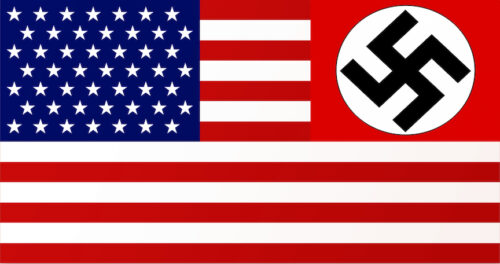
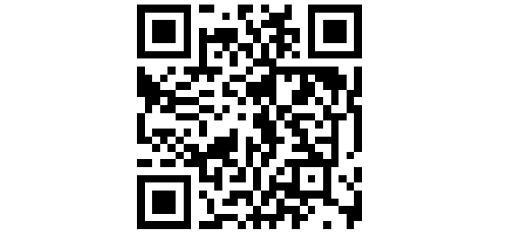








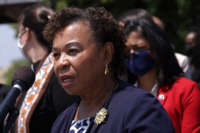
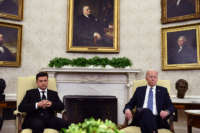



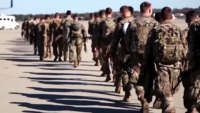

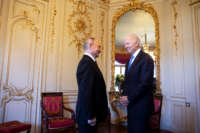

 JennyD
JennyD

 (@OutriderTed)
(@OutriderTed) 


